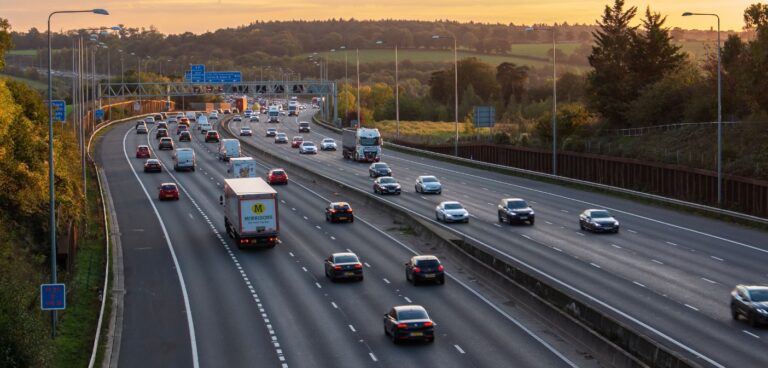After the completion of a final assessment phase, seven projects have successfully met the necessary criteria to qualify for the deployment and procurement stage of the £30m Association of Directors of Environment, Economy, Planning & Transport (ADEPT) Live Labs 2: Decarbonising Local Roads programme.
These assessments marked the completion of a three-month mobilisation phase, wherein the teams developed fully-costed business cases for their programmes to demonstrate they could be successfully delivered.
The first part of this three-year phase will now involve procurement for supply partners, materials and services to prepare for project deployment.
Richard Holden, roads minister, said: “Taxpayers want to get the biggest bang for their buck, promote high skilled jobs in the UK and to ensure that we can maintain and improve our road network in the least environmentally damaging way possible.
“This targeted £30m investment in world-leading pioneering and innovative technologies will help harness the first rate skills of British science and industry to help us reduce both the costs and environmental impact of construction, operation and delivery of our roads while boosting regional connections and providing high-skilled jobs across the country.”
The three-year programme has been funded by the Department for Transport (DfT), following the completion of Live Labs 1.
The Live Labs programmes were set up to improve highways infrastructure and assets across local roads, with the first phase focusing on smart and digital technologies and the second on decarbonisation.
The structure of phase two marks a departure from Live Labs 1, wherein the seven project teams will work across four connected ambitions:
- Introducing a UK centre of excellence for materials, which will oversee research into decarbonisation of local roads materials, developing a knowledge bank, real-life conditions testing and sharing and learning insights, run by North Lanarkshire Council and Transport for West Midlands
- Developing a suite of corridor and place-based decarbonisation schemes covering urban through to rural applications, trialling, testing and showcasing applications, run by the Wessex partnership (Somerset County Council, Cornwall Council and Hampshire County Council), Devon County Council and Liverpool City Council
- Setting up a green carbon laboratory that will examine the role that non-operational highways ‘green’ assets can play in providing materials and fuels to decarbonise highway operations, run by South Gloucestershire Council and West Sussex County Council
- A future lighting testbed to examine what assets are needed for future road networks and how they can be further decarbonised across their lifecycle, run by East Riding of Yorkshire Council.
Mark Kemp, president of ADEPT, said: “The decarbonisation of highways infrastructure is both hugely challenging and vital as local authorities work to meet zero targets.
“Decision-making and behavioural change is as fundamental to success as supply chain and materials, which is why we focused on a fully-funded mobilisation phase. Having procurement and legal strategies already in place will ensure that project procurements run smoothly with potential partners understanding what programme expectations mean for deployment.”
Read more: Kent County Council assesses success of ADEPT Live Labs programme





